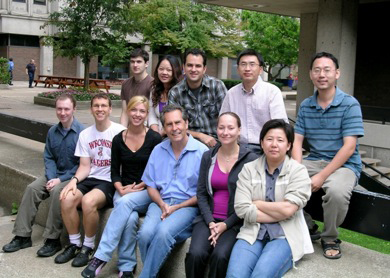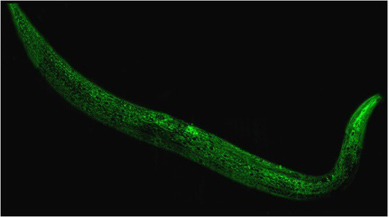 |
 |
|
|
 |
||
| Annual Report | ||
 |
News | |
| MDRC Administration | ||
 |
Directory / Bottin | |
 |
Contact Us | |
 |
Directions / Maps | |
 |
Steering Committee | |
| Research | ||
 |
Events & Seminars | |
 |
MDRC at the forefront | |
 |
McGarry Lecture | |
 |
Cahill Lecture | |
 |
MDRC Core Facilities | |
 |
Scientific Links | |
 |
Education & Employment | |
| Funding | ||
 |
MDRC Grants | |
 |
Donations | |
 |
Non-Profit & Industrial Partners | |
| Medical Information | ||
 |
JDRF | |
 |
CDA | |
 |
Diabetes Quebec | |
 |
ADA | |
 |
IDF | |
 |
NIH / NIDDK | |
 |
Alfediam | |
 |
EASD | |
| Home / About Us > Dr Siegfried Hekimi | Contact info Dr Siegfried Hekimi Tel: 1-514-398-6440
Research keywords
|
|
Siegfried Hekimi, PhD
Professor of Biology
Fellow of the Royal Society of Canada Biographical Sketch
After a successful career as a professional cyclist, Siegfried Hekimi took his PhD in Biology at the University of Geneva in Switzerland. He then stayed as a fellow at the Laboratory of Molecular Biology of the Medical Research Council in Cambridge, England, where he started his studies with the nematode Caenorhabditis elegans. In 1992 he joined the department of Biology at McGill University in Montreal where he holds the Strathcona Chair of Zoology and the Campbell Chair of Developmental Biology. Since 2010 he is a Fellow of the Royal Society of Canada. His research is focused on the biology of genes that affect mitochondrial function, and on the impact altered mitochondrial function has on cell function and on whole-organism physiology, including on the rate of aging. Professor Hekimi now also extensively uses mice to investigate these questions, and combines findings in both C. elegans and mice to test hypotheses regarding the molecular mechanisms that are responsible for the aging process and for the development of age-dependent diseases Research Interests
Mechanisms of longevity in Caenorhabditis elegans. We are studying long-lived mutants in genes that code for mitochondrial proteins. We are particularly interested in genes that alter the function of the mitochondrial electron transport chain and that alter reactive oxygen species generation. The genes we are studying are clk-1, which codes for an enzyme necessary for ubiquinone biosynthesis; isp-1, which codes for the "Rieske" iron-sulfur protein, a catalytic subunit of mitochondrial complex III; nuo-6, which codes for a subunit of mitochondrial complex I; and sod-2, which codes for the main mitochondrial superoxide dismutase. Using mutations in these genes, we have found that increased generation of superoxide acts as an intracellular second messenger to trigger longevity of these mutants. Currently, we are studying the pathway of signal transduction that leads from mitochondrial superoxide to changes in gene expression that are necessary for longevity. Mechanisms of longevity in Mclk1+/- and Risp+/- mutant mice. We are studying in mice the aging genes that we have discovered in C. elegans: in particular Mclk1 (the orthologue of C. elegans clk-1) and Risp (the orthologue of C. elegans isp-1). Mouse strains carrying a single intact copy of either of these genes are long-lived. In addition to studying the basic biochemical and physiological phenotypes of these mice we are determining how the mutations alter the sensitivity to age-dependent diseases, including diabetes, neuro-vascular disease, sarcopenia and cancer. For this we also use conditional alleles (cre-lox) of the genes. Regulation of lipoprotein synthesis and secretion in Caenorhabditis elegans. We have discovered that some mutant strains of C. elegans have altered synthesis and secretion of LDL-like lipoproteins. Furthermore, we have found that these strains are also sensitive to drugs that stimulate reverse cholesterol transport or HDL levels. Using this system we seek to discover new drugs and new targets for intervention on lipoprotein levels.
|
|
| � Montreal Diabetes Research Center 2018 |
| Home / About Us News Directory / Bottin Contact Us |

